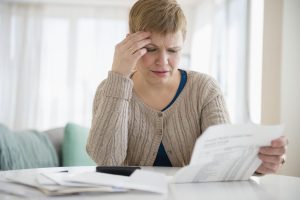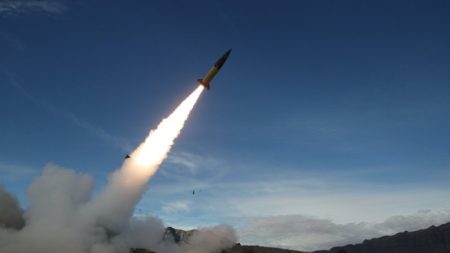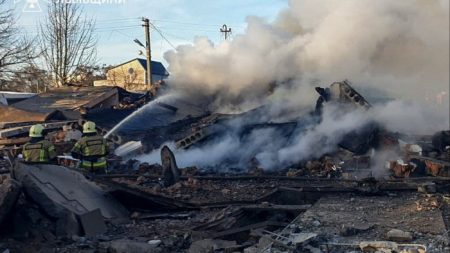Unlock the Editor’s Digest for free
Roula Khalaf, Editor of the FT, selects her favourite stories in this weekly newsletter.
Germany’s ruling Greens were plunged into crisis on Wednesday when their co-leaders resigned in response to the party’s dismal performance in three regional elections this month.
The shock move by co-leaders Omid Nouripour and Ricarda Lang came days after a poll in the eastern German state of Brandenburg, where the Greens’ share of the vote more than halved.
Nouripour told reporters on Wednesday that the result showed the Greens were now in their “most profound crisis in a decade”. The party’s executive had decided that it needed “a fresh start”, he said, adding: “It’s time to put the fate of this wonderful party in new hands.”
Support for the Greens, one of the three parties in Chancellor Olaf Scholz’s coalition government, has collapsed in recent months amid a public backlash against climate policies.
The party has also suffered from the perception that it is blocking moves to restrict the number of asylum-seekers entering Germany, at a time of mounting public concern about irregular immigration.
Nouripour said the Greens would elect a new six-person executive at their scheduled party conference in Wiesbaden in November. He and Lang would continue in post until then.
Robert Habeck, the Green deputy chancellor, called their move a “great service to the party”. “This step shows great strength and farsightedness,” he said, saying the two co-leaders had “proven what the party leadership means for them: responsibility”.
The Greens have suffered from the declining popularity of a governing coalition that currently has approval ratings of just 3 per cent. The fractious alliance of Social Democrats, Greens and liberals has been blamed by voters for everything from high inflation, surging energy costs to a stagnating economy. There is also anger at what is seen as constant squabbling between the coalition parties, most recently over next year’s budget.
Lang told reporters the Greens needed “new faces to lead the party out of this crisis”. She said the election of a new party executive would contribute to the “strategic realignment” needed ahead of critical parliamentary elections next year.
“We want our party to enter the contest for the future of this country and the future of Europe in as strong a state as possible,” she said. “Now is the time to take responsibility, and that’s what we’re doing by enabling a fresh start.”
Nouripour, who grew up in Tehran and came to Germany with his family when he was 13, was elected co-leader with Lang in January 2022. They were reelected last year and were supposed to continue until November 2025.

In addition to Brandenburg, the Greens also suffered bruising defeats in the eastern states of Thuringia and Saxony, where they had previously been part of the regional governing coalitions.
All three elections cemented the ascendancy of the far-right Alternative for Germany, which campaigned on a radical anti-immigrant platform. In Thuringia the AfD came first, marking the first time a far-right party has won a regional election in Germany’s postwar history.
The Greens faced widespread voter discontent with government climate policies, especially a controversial law designed to encourage people to replace gas- and oil-fired boilers with heat pumps powered by renewable energy.
Data visualisation by Martin Stabe
Read the full article here












